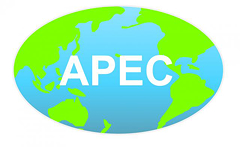APEC Continues Work To Reduce Green Goods Tariffs
26/08/2014 12:00

A recent meeting of its senior officials was assured that Asia-Pacific Economic Cooperation (APEC) member countries are continuing their work to ensure the realization of their commitment to boost free trade in environmental goods, while also laying a foundation for the opening of this sector with other World Trade Organization (WTO) members.
While global trade in so-called "green goods" totals nearly USD1 trillion annually, some countries apply tariffs as high as 35 percent, adding unnecessary costs to environmental technologies. APEC is working to reduce import tariffs to five percent or less on a list of 54 green goods by 2015. That list of goods, agreed by all the APEC members in 2012, could grow as more products that promote energy efficiency, such as solar panels, are identified.
Building on the APEC commitment, in January this year, a group of WTO members – Australia, Canada, China, Costa Rica, Taiwan, the European Union, Hong Kong, Japan, South Korea, New Zealand, Norway, Switzerland, Singapore, and the United States – also pledged to launch negotiations on an Environmental Goods Agreement to liberalize trade in green goods.
John Larkin, Chair of the APEC Committee on Trade and Investment, which is the coordinating body for the initiative, confirmed that "member economies are working hard to implement this tariff reduction commitment. Implementation requirements between economies vary in nature and scope. We are stepping up our technical discussions to enhance transparency and consistency in how member economies implement the commitments in their tariff schedules."
It was also pointed out that the total market in green goods and services is expected to double to USD2 trillion by 2020, according to Environmental Business International, and that half of the top ten global exporters of those goods and 12 of the top 30 are APEC economies.
"Average tariffs on the products on the APEC environmental goods list are below or close to the five per cent target in many cases, but they are still higher for selected goods such as solar water heaters," noted Carlos Kuriyama, Senior Analyst at the APEC Policy Support Unit. "Further tariff reductions on the list will boost trade, job creation and sustainable growth."
"The liberalization of environmental goods within APEC is laying a foundation for multilateral talks at the WTO that are just getting off the ground and could even encourage the replication of tariff reductions in other sectors or types of products," he added.
Source: Tax News
Các tin khác
- Vietnam and Southeast Asian Solar Firms Face US Anti-Dumping, Anti-Subsidy Probe (03/05/2024)
- Infrastructure development creates momentum for exports to "neighboring" markets (03/05/2024)
- Seaports increase services to attract goods (03/05/2024)
- Chinese EV makers risk tougher duties over failure to cooperate with EU probe (03/05/2024)
- RoK burgeoning market for Vietnam’s agro-forestry-fisheries exports (03/05/2024)
 Home
Home
 About Us
About Us




















